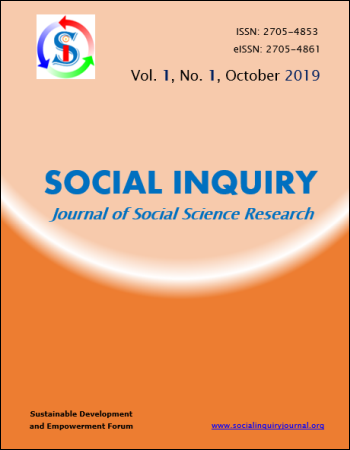Microcredit and Women's Empowerment
DOI:
https://doi.org/10.3126/sijssr.v1i1.26916Keywords:
Microcredit, empowerment, access to capital, control over resourcesAbstract
This paper aims to examine whether the microcredit (MC) programme, a financial mechanism to provide small amount of credit to the poor, had improved the status of poor women in the family as well as in society i.e. empowerment status of women. The research is based on primary survey of three settlements in the periphery of Bandipur Municipality of Tanahun district. For survey, a sample of 30 women were selected which represented 15 percent women beneficiaries of microcredit from the study area. The respondents were selected by using systematic random sampling. In addition to questionnaire survey, KII with six local persons and two FGDs were also conducted. The paper has used the conceptual framework of Sara Longwe (1990) to examine women empowerment. The findings are derived by comparing the position of women in various family affairs such as access to finance, control over income and expenditure, children's education and participation in social meetings etc., prior to and after participation in MC programmes. The results showed that most of the females who received microcredit reported socioeconomic empowerment through access to capital, control over resources, decision making power, etc. The findings, however, varied with regard to Dalit, Janajati and Brahmin/Chhetri women and those women in hard core poverty and landless families are still out of the reach of MC programmes. Those who are engaged in income earning activities with the MC need to be supported financially and technically to upscale their business so that the cumulative effect would also contribute to the improving various macro-economic indicators of the economy.




